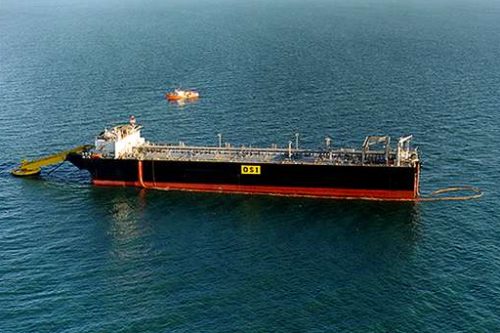Mining giant announces record dividend payout

Global mining giant BHP Billiton, which operates an oil and gas operation in Liverpool Bay, is paying a record dividend, despite a series of one-off charges.
Announcing its annual results to June 30, today, the Anglo-Australian group said it will raise its final dividend by 42% to a record 63 US cents per share, taking total dividend payouts for the year to £1.9bn.
Pre-tax profits of £11.54bn were a third better than the previou syear, while revenues climbed by 20% to £34bn.
However, net profit fell by 37% to £2.88bn after larger-than-expected one-off charges of £4.05bn, related to the sale of its shale gas fields in the US, tax changes introduced by President Donald Trump, and other costs.
BHP chief executive Andrew Mackenzie said: “We have announced a record final dividend for shareholders which reflects strong operating performance, solid prices and capital discipline.
“Our relentless focus on safety and productivity has released additional volumes across our supply chain, with eight per cent volume growth for the year.
“Our balance sheet is strong, with net debt now at the lower end of our target range, and our investment plans on track across iron ore, copper, coal and petroleum.”
He added: “We have started the new year with the sale of our onshore US business for US$10.8 billion, and once completed we expect to return the net proceeds to shareholders.
“Across our dramatically simplified portfolio of tier one assets, we see this year’s strong momentum carried into the medium term as our leadership, technology and culture drive further increases in productivity, value and returns.
“Our rich suite of options, coupled with our rigorous capital allocation framework, will make sure we get the most out of every dollar we invest.”
The Liverpool Bay Development is BHP Petroleum’s largest single project worldwide and comprises four oil and gas fields, together with significant offshore and onshore facilities for extracting, transporting and processing the reserves.
Offshore operations are centred on the Douglas complex – a three-platform facility 24km off the North Wales coast that monitors and controls the development’s three unmanned satellite platforms at Lennox, Hamilton and Hamilton North.
Oil and gas from all four fields are received at Douglas.
The oil produced from the Lennox and Douglas fields is then processed, blended and sent through a 20km pipeline to the offshore storage installation, before being loaded into tankers, for export worldwide.
Gas extracted from Hamilton and Hamilton North, as well as from Lennox, is part-processed on Douglas before it travels via a 34km pipeline to BHP’s state-of-the-art gas terminal at Point of Ayr, on the North Wales coast.
The total recoverable reserves in Liverpool Bay are currently estimated to be in excess of 150 million barrels of oil and 1.2 trillion cubic feet of gas.
With peak oil production expected to average some 70,000 barrels per day, and a peak gas capacity of 300 million ft³ per day, the life of the development is projected to be at least 20 years.
The three-platform Douglas Complex is the nerve centre of the offshore development. It is manned around the clock, controlling and monitoring activities in all four Liverpool Bay fields from a central control room located on the accommodation platform.
Like the satellite platforms in Liverpool Bay, Douglas is protected by a 500m shipping exclusion zone, which is constantly monitored by radar and patrolled 24 hours a day by one of the development’s three support vessels.
All of the oil produced in Liverpool Bay is sent from Douglas to the development’s offshore storage installation – an 870,000bbl-capacity tanker, which is permanently moored outside shipping lanes in the Irish Sea.
Russ Mould, investment director at Manchester investment platform AJ Bell, said: “BHP Billiton, one of the world’s biggest mining companies, looks to be at another major turning point in its life.
“Having streamlined the business following a cyclical downturn in commodity prices, BHP’s latest results show the benefits of being leaner, as well as an ongoing recovery in prices.
“Volumes have been growing, it is getting more money for the goods it digs up and sells, and capital spending is near a cyclical low.
“The next phase of its life looks like it will see fairly flat volumes and prices, together with a rise in costs and capital spending.
“This doesn’t look like a suitable point for BHP to start acquiring large-scale rival businesses, even though it is financially in fairly decent shape.
“Instead, it seems that the FTSE 100 constituent will focus on churning out the profits rather than making any major strategic step forward.
“Indeed, BHP adopts a cautious tone in its results amid concerns about trade wars and protectionism, so it doesn’t seem the ideal moment to be going on a spending spree.”
He added: “For investors, it means being paid to wait for an improvement in the commodities landscape. A record dividend at the full year results equates to an approximate 5.5% dividend yield for the year as a whole, which should be viewed as an attractive income stream.
“The market may be slightly disappointed that BHP hasn’t declared a large share buyback like some of its peers in the natural resources industry.
“However, shareholders will eventually be getting a slice of the $10.8bn proceeds from selling its onshore US business at some point in the future.”




